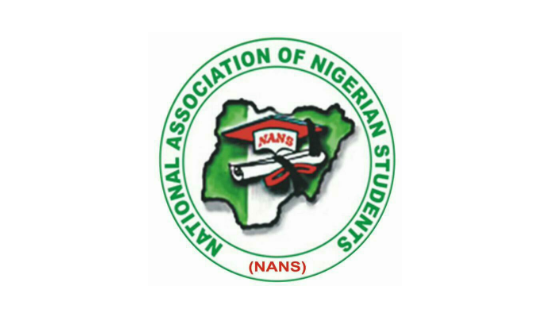NANS suggests five years after NYSC for student loan repayment


The National Association of Nigerian Students has stated that it is unrealistic to expect recipients of the Federal Government loan scheme to begin payback two years after completing the National Youth Service Corps.
It argued that less than 10% of graduates are incorporated into the employment market within two years after completing NYSC.
It therefore proposed that payback begin five years following NYSC.
Lucky Emonele, President of NANS, made the call in Abuja on Monday at a public hearing on the repeal and re-enactment of the 2024 Students Loans Access to Higher Education Bill 2024.
The Senate Committee on Education and TETFUND, as well as the House of Representatives Committee on Student Loan, Scholarship, and Higher Education Financing, convened the public hearing.
Emonele praised President Bola Tinubu for complying to NANS’ proposal by appointing its leaders as student representatives on the loan board.
He went on to say that the students praised the decision to repeal the Act in order to address any ambiguities that could jeopardise the student loan scheme’s viability.
He claimed that the planned two-year repayment timeframe for the loan was unrealistic, citing the fact that less than 10% of Nigerian graduates get incorporated into the work field after completing their NYSC.
Given the difficulties of finding employment after graduation, the NANS President suggested a repayment period of at least five years.
The NANS president also advocated for the inclusion of study grants for Nigerian students in the Act proposing to establish the Nigeria Educational Loan Fund.
He also said that the existence of a loan plan should not be used by tertiary institution administrators to justify arbitrary increases in school prices.
He encouraged the National Assembly to enact a resolution prohibiting public higher institutions from raising student fees in the next ten years.
He claimed that this was the only method to keep the act in effect once it had been passed.
According to him, there is also a need to make provision for grants for students, to enable them to complete or further their studies.
This, he said, would encourage more students to enroll in school and alleviate the burden that may be placed on the loans.
“If the Federal Government, through the Tertiary Education Trust Fund, could earmark N683bn for public tertiary institutions in 2024, without requesting for payback from beneficiary institutions, Nigerian students should not be treated any differently.”
The Minister of Education, Prof. Tahir Mamman, commended President Bola Tinubu for his passion and commitment to the education sector.
According to him, the President does not want any child of school age to be out of school, given his passion for education.
The minister said the public hearing would provide an opportunity to make further input to improve the bill for the good of Nigerian students.
The chairman of the committee, Senator Muntari Dandutse, said access to quality higher education was a pressing concern for many Nigerian students.
Dandutse said its successful implementation would unlock a brighter future for the youths and the entire nation.
“By removing financial barriers, these initiatives will enable more students to pursue higher studies, leading to a larger pool of skilled graduates who contribute to the country’s social and economic development. Increased literacy rates foster economic growth, social progress, and democratic participation.”
Earlier, the Senate President, Godswill Akpabio, said that the legislative agenda of the 10th National Assembly would bring about tremendous improvement in the standard of living of Nigerians.
Represented by the Deputy Senate President, Jibrin Barau, he commended President Tinubu for his foresight and uncommon passion for supporting the students of the country with the loan scheme.







